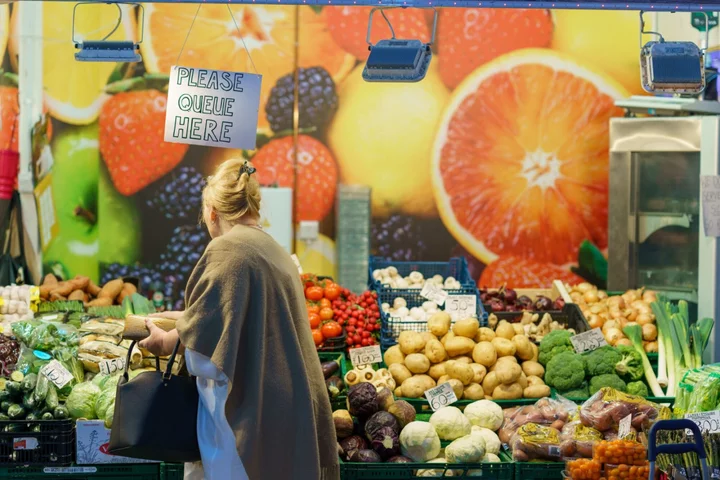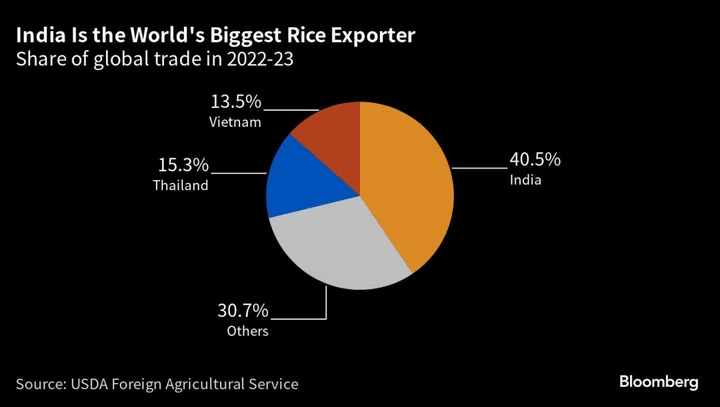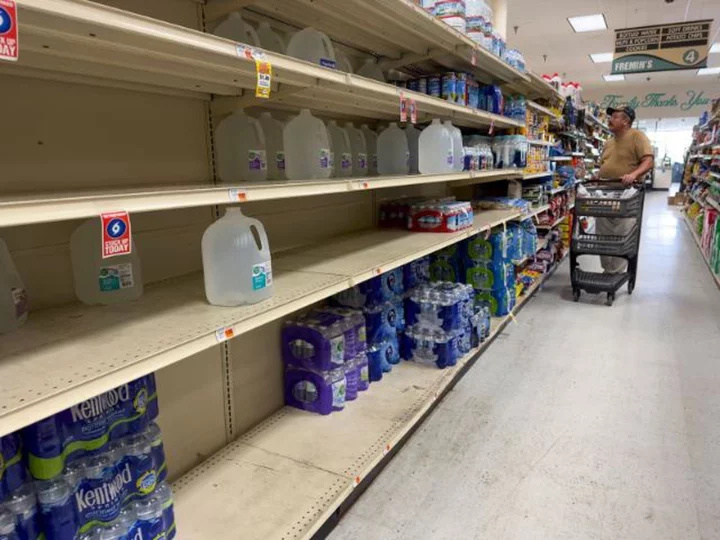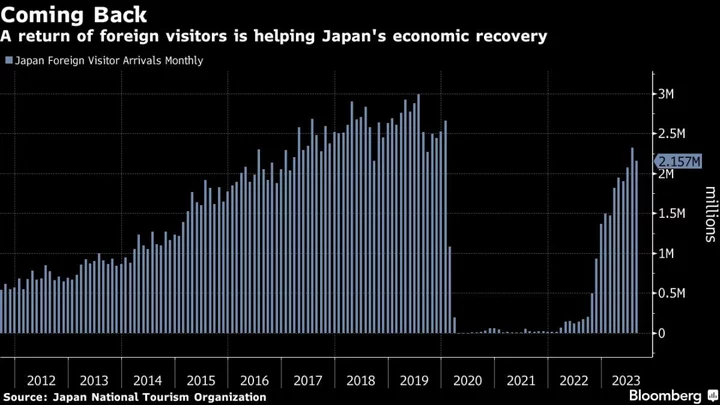Grocery price inflation in the UK edged lower for a second month — but shoppers will have barely noticed.
The rate dipped to 17.2% in the four weeks to May 14, down from 17.3% the prior month and a peak of 17.5% before that, according to market research group Kantar. The latest level is still the third-fastest rate of food inflation Kantar has seen since 2008 and could add £833 ($1,035) to the average family’s grocery shopping.
The marginal drop means prices are “still incredibly high,” said Fraser McKevitt, head of retail and consumer insight at Kantar.
UK consumers are doing everything they can to curb the impact of sky-high inflation, shopping at discount grocers Aldi and Lidl and buying supermarkets’ own-brand goods. Aldi was the fastest-growing grocer in the 12 weeks to May 14 with sales rising 24% year-on-year while Lidl followed closely with an increase of more than 23%.
By this summer food costs will have overtaken energy bills in the scale of impact on household finances, think tank Resolution Foundation said in a report last week. Spending on food is a larger share of household spending versus energy and low-income families are particularly badly affected by rising prices, according to the study.
Britain’s overall inflation rate is expected to fall at its sharpest pace in more than 30 years when April’s figures are reported on Wednesday, giving households a glimmer of relief from the worst cost-of-living squeeze in generations. The predicted drop is due to sharp increases in energy prices a year ago falling out of the comparison.
Supermarkets are passing on some deflation, especially in milk where the average cost of four pints fell by 8 pence since last month, according to Kantar, which warned that prices are still much higher than they were a year ago.
“Retailers know just how important it is to offer even small savings on staple products like milk to get customers through the door,” said McKevitt.
The coronation of King Charles III earlier this month spurred a 16% jump in grocery sales with shoppers buying an extra £218 million of products, especially wine, to host street parties and entertain friends and family. Upmarket grocer Waitrose particularly benefited from a boost with sales rising 4.8% over the 12 weeks, the highest rate of growth for the supermarket since April 2021.
--With assistance from Agnieszka de Sousa.
(Updates with Resolution Foundation report in fifth paragraph.)









